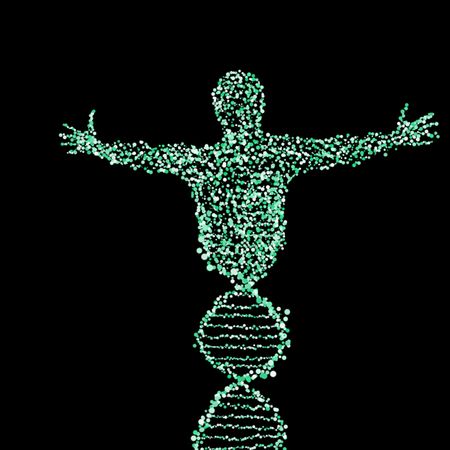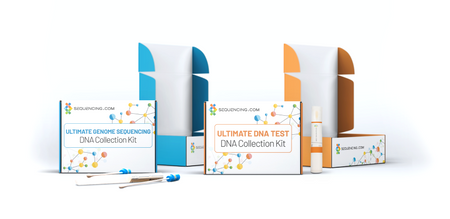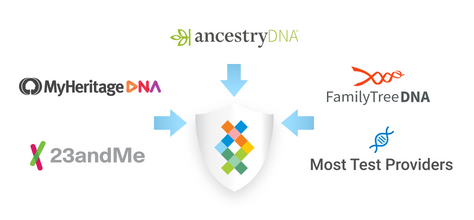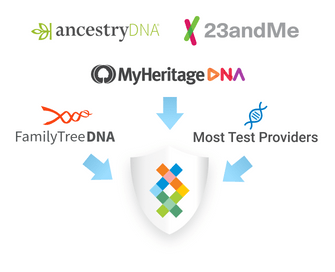5 Things You Need to Know About DNA Nutrition
Did you know a DNA test can help you understand your body’s dietary needs? Click here for what you need to know about DNA Nutrition.

Almost 17 million people have sent their DNA in for sequencing. Out of those 17 million, approximately one million have had their entire genome sequenced.
Does DNA nutrition play a role in how you eat, how you feel, and how you lose or gain weight? DNA tests can play a critical role in unraveling the secrets the human body possesses.
It has helped provide insight into deadly and hereditary diseases such as Huntington’s disease. It has also shed light on variants that pose a high risk for someone developing breast cancer.
If you have an interest in learning more about DNA nutrition and your own diet, then keep reading on.
What Is DNA Sequencing?
DNA sequencing is exactly as it sounds. Scientists use techniques that help sequence a molecule of your DNA. The magnitude of determining someone’s exact DNA has helped researchers determine risk for hereditary disease and more.
Variations in your DNA and exons - protein-coding in your genes - can predispose someone to an illness, disease, or even things like sensitivities to foods.
1. DNA Nutrition Offers Insight
The latter portion, called DNA-based diets, is what has drawn a large number of people. DNA tests and genome sequencing have risen in popularity and provided insight into people’s tolerance to gluten, lactose, sugar, and even caffeine and different supplements.
This field of genetic study is called nutrigenomics and it helps provide users with DNA diets that are catered to their unique sensitivities and tolerances to foods. Ultimately, this can help someone eat healthier and achieve their weight loss goals.
It can also help curb the spread of chronic illnesses such as heart disease and diabetes. Typically, these DNA kits analyze dozens of different components of your DNA.
2. How You Metabolize Caffeine
Diets and your DNA are being more closely examined, especially in the elderly and athletes. Many elderly are more prone to metabolic disorders that predispose them to cancers and other illnesses.
On the other end of the spectrum, research has been conducted on athletes and DNA-based diets.
It is well known that athletes thrive on peak performance, and diet plays a large role in this. Previous studies examined variants in DNA associated with the metabolism of caffeine.
There are two variants for slow and fast metabolizers of caffeine - CC or AC and AA. Those with the AA variant - the fast metabolizers of caffeine - had an almost 7% improvement in their cycling time when given 4 mg of caffeine per kilogram of body mass.
On the contrary, the CC variant group showed a decline in performance by approximately 14 percent. Additionally, vertical jump improved in basketball players immediately following ingestion of caffeine in the AA group.
The CC group did not show any changes.
3. Helps Athletic Performance
Genes associated with serum iron levels have also had an indirect relation to athletic performance and wellness. Variants in the HFE gene can increase the risk of iron overload.
However, people with the AA variant tend to be high-level athletes. This suggests there is a fine line with athletes who have higher levels of iron and participate in athletic events.
Genetic testing can also identify genetic variants for those who have low levels of critical fat and water-soluble vitamins. In return, compensating for low or high risks can give athletes the edge they need.
4. Genetic Risk Factors
There are several genes that can determine someone’s higher or lower risks for things like high cholesterol, cardiovascular, and even obesity. Some of these are related to a single gene. For example, DNA tests can show markers for phenylketonuria and lactose intolerance.
Both of these mutations can cause lactose intolerance and an inability to metabolize phenylalanine.
However, most genetic markers are more complex than this. They involve multiple different markers. Researchers have discovered genetic markers that increase someone’s risk for obesity and higher fat mass.
Some markers help pinpoint risks for cardiovascular disease. Two common ones include lipoprotein lipase (LPL) markers and low-density lipoprotein receptors (LDLR). These affect how someone breaks down cholesterol and fats.
Genetic variations in vitamin levels can also predispose someone to deficiencies. In return, this increases one’s likelihood of developing various diseases or illnesses. Some common vitamin markers checked in genetic testing are vitamin D, vitamin C, vitamin A or vitamin B12.
One breakthrough study found a genetic link to diabetes type 2 and obesity. People with the FTO AA genotype had higher likelihoods of obesity than those who didn’t carry the variant.
When the FTO AA genotype combines with variants in the MC4R genotype, a person is more likely to develop diabetes.
5. No More Trendy Diets
So - what can you do with genetic testing? If your markers show you have higher sensitivities to starches, then you could cut back on carbs and focus on a low-carb diet.
A higher genetic predisposition for cardiovascular disease may indicate you need to stop eating as much red meat. However, nature and nurture go hand-in-hand.
Just because you have a variant in a gene does not mean you will develop an illness or disease. Instead, DNA markers for nutrition can give you a backbone for developing healthier diet plans and optimal health.
It can also provide you with awareness of diseases that you are more at risk of developing such as diabetes or cardiovascular disease. These tests give insight into why you can’t lose stubborn belly fat no matter how many diets or nutritionists you have tried.
This means you can stop trying out trendy diets and buy food that you know will help you feel and look better.
DNA Nutrition and Your Health
Your DNA nutrition levels can show you how to live healthier by implementing a healthy diet. That could be counting macronutrients or micronutrients more closely, meeting with a dietitian to create meal plans or cutting out all carbohydrates. It does not solve all of your health problems but can shed light on how your body responds to vitamins, supplements, starches, and fats.
Not only can we provide you with detailed information for DNA nutrition and what works solely for you, but we give you access to the Nutrition Heritage Report. This report will give you DNA-based insight into your nutrition heritage. If you are looking to understand what your DNA Ancestry really means when it comes to the foods that your relatives digest optimally, this report is for you. Fad diets don’t serve anyone and they are a recipe for failure. The Nutrition Heritage Report will enlighten your perspective and help you choose foods and a nutrition plan that are optimal for you.
It highlights areas of deficiency or how your body metabolizes lactose, sugars, and lipids. DNA sequencing is one step closer to optimal and customized health plans.
Get in touch with us and upload your DNA tests today, or purchase a DNA test kit, and get started on a healthier lifestyle.




